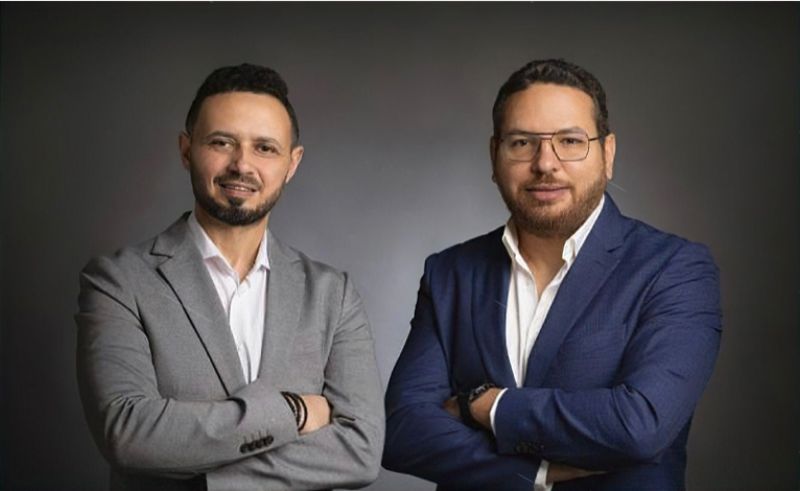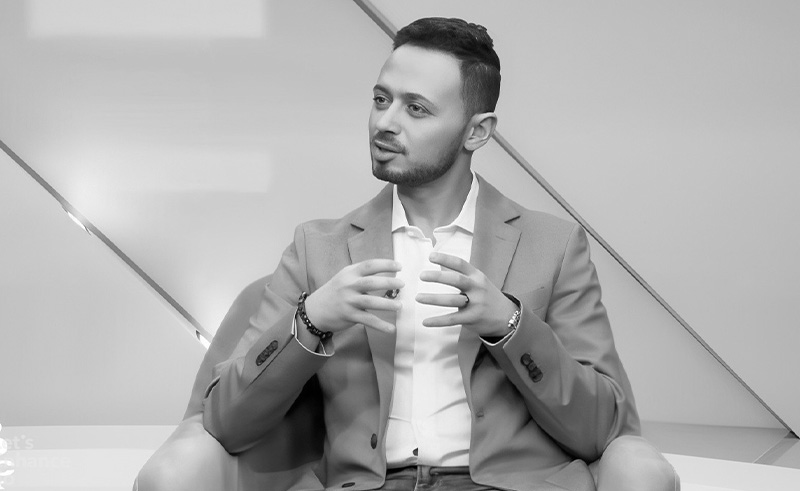The Egyptian Startup Powering AI in the Middle East
After seeing the limits of AI solutions in the region, Ahmed Mahmoud founded DXwand to help businesses enhance their services.

Egypt-based AI startup DXwand has been using AI to enhance businesses across the MENA region long before the technology was thrust into the global spotlight. Founded in 2018 by Ahmed Mahmoud, the startup leverages conversational AI to support businesses in the Middle East by automating their customer service and unlocking business insights.
After spending more than eight years working in Vodafone and Microsoft, Mahmoud realized that AI solutions in the Middle East were limited. AI models weren’t mature, and they didn’t cater to the Arabic language or other dialects in the region. “I found some gaps on what Silicon Valley blue chips are offering in the Middle East, and thought that this gap should be filled,” Ahmed Mahmoud, Founder of DXwand, tells StartupScene.
Today, after almost six years of operations, DXwand has offices in Egypt, the UAE and Saudi Arabia, and works with clients in diverse industries, including education, finance, healthcare and government services. The startup is also now looking to expand and enter new markets in the region and beyond.
PIVOTING TO STAY RELEVANT

Like any startup, launching and growing a business is hard. But for DXwand, it had the added challenge of finding product market fit at a time when AI was not as mainstream as it is today. The startup therefore had to pivot several times until it reached its current business model. “In 2018, we started as a company that does chat bots for SMEs,” Mahmoud says. “The chatbot would handle delivery and sales related conversations. And in our most recent pivot in 2021, before the AI hype, we developed the most intuitive Arabic experience on voice and text.”
According to Mahmoud, startups must keep on innovating and providing value to customers if they wish to survive. And with technology advancing and progressing at the speed of light, startups like DXwand must consistently show added value by providing better and cost-effective solutions for both clients and their customers. “We have to think about what the problems that customers using ChatGPT are having. How can I compliment that and fill in those gaps, so I can save on costs for them?” Mahmoud says. “I need to give them something more accurate, give them something more risk-free, and this is what I’m trying to focus on.”
Indeed, DXwand has been successful in providing value to its clients, especially in streamlining customer service conversations. It takes all the knowledge that businesses have on their manuals, PDFs, contracts, and agent guidelines, and streamlines it to automate conversations for their customers across any voice or text channel. “So, instead of having agents respond to you when you have a problem, for example on your mobile plan, you can have a software do that automatically at any scale,” Mahmoud explains.
This functionality also spans across call centers, Facebook messenger, WhatsApp, SMS, and websites in both Arabic and English.
ATTRACTING FUNDING

Although the startup raised $4 million in a Series A round earlier this year, attracting capital was initially challenging, especially in its early days. “When I was fundraising in 2019, VCs would tell me that they don’t know how to evaluate the startup since I was operating in deep tech. I was told to look for other funding alternatives,” Mahmoud says.
The startup still managed to secure seed funding of about $150,000 soon after launching from two angel investors. However, it had to rely on becoming profitable quickly to survive. “This made us focus on fundamentals, focus on how to make our service really profitable, to bring in a lot of money, because if we don’t sell, we will die,” Mahmoud says. “So, I’m really grateful for those early VCs, because they made us really work very hard on this.”
The latest funding round will be used to support DXwand to further expand in the region, and accelerate its research and development efforts in LLM, knowledge mining, retrieval augmented generation and generative AI.
GROWING ACROSS INDUSTRIES

Besides its conversational AI services, DXwand is growing across industries to support businesses to become more efficient and cost effective.
One of the industries that the startup is currently focusing on is education. After learning that teachers spend about 40% of their time planning lessons, it partnered with educational companies and institutions to support teachers. “Using generative AI can create lesson plans in seconds, giving teachers more time to interact with students,” Mahmoud explains.
Likewise in the financial and insurance sector, the startup is also using generative AI to help clients calculate risk and analyze data, amongst other services. “The use cases may be very different from one industry to another, but as a technology company, we have to know what the client wants,” Mahmoud says. “For example, a company that works in education may not know a lot about AI, but they know the problems in their industry. They can share it with us and we can brainstorm how to solve it with our technology.”

The key, however, is to ensure that the data used to train AI is of high quality. Otherwise, the output risks being inaccurate, inconsistent or, worse, biased. This is especially important since data results are used to make predictions and provide recommendations. “You need a pipeline to do some tasks on validation and verification of the use of this information, and how it will be presented,” Mahmoud says. “This gives governance to our clients. Or else, why exist while ChatGPT is there?”
As Mahmoud continues to grow his startup, he hopes to be an example for youth today about building deep technologies in the region, for the world. He believes all it takes is the right environment and the right mindset to create limitless opportunities. “I believe if youth have the right environment and the right mindset, they can build technologies that measure up to Silicon Valley,” he says. “I want to empower youth to build technologies and show the world that innovation can also come from the region.”






















